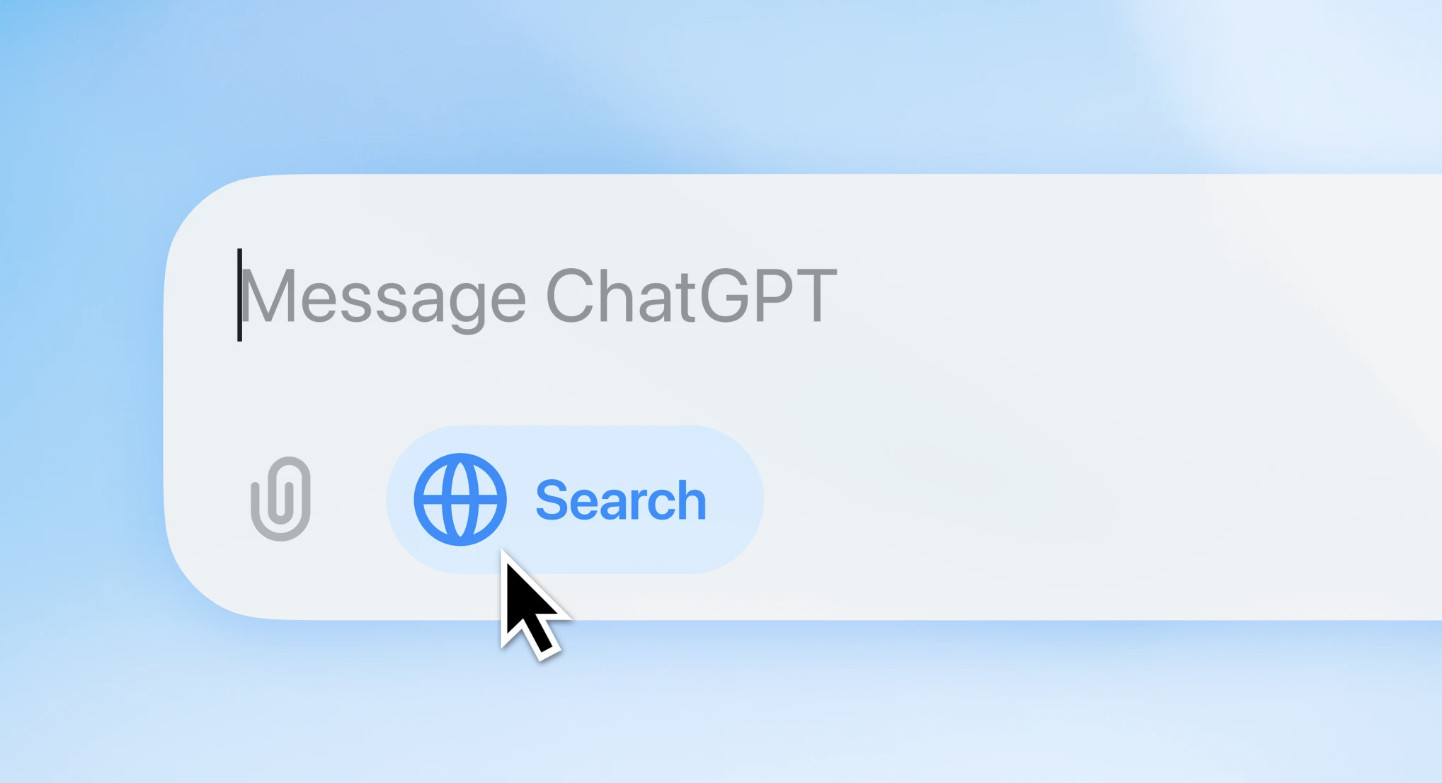ChatGPT Search: OpenAI’s AI-Powered Answer to Traditional Search Engines

ChatGPT Just Got Smarter – Thanks to the Internet
Imagine asking ChatGPT a question and getting real-time, up-to-date answers straight from the web. Well, that’s no longer a fantasy—OpenAI has rolled out a game-changing update that introduces ChatGPT Search.
On October 31, OpenAI announced this new feature, allowing users to tap into real-time web searches when interacting with ChatGPT. No more relying solely on pre-fed knowledge—now, it can search the web to provide richer, more accurate responses.
Users can either let ChatGPT decide when to search or manually trigger a web search by clicking the designated icon. This update significantly enhances the chatbot’s ability to provide timely and relevant information, bridging the gap between AI-powered conversations and the vast digital knowledge available online.
 ChatGPT, OpenAI
ChatGPT, OpenAI
ChatGPT Search. Source: OpenAI
Could This Be the Beginning of the End for Traditional Search Engines?
Before this update, ChatGPT had limited web access—it could only pull information from its training data, which had cut-off dates. Now, with integrated web search, it’s stepping into competition with traditional search engines like Google and Bing.
“You can get fast, timely answers with links to relevant web sources, which you would have previously needed to go to a search engine for.” — OpenAI
Essentially, instead of typing a query into Google and sifting through different links, you can simply ask ChatGPT and get concise answers—links included!
Not only can ChatGPT now fetch updated information, but it also keeps the context of your entire conversation. That means you can ask follow-up questions without having to rephrase everything, and the chatbot will refine its answers based on your previous queries.
The Power of Partnerships
To ensure the quality of its responses, OpenAI has struck deals with some of the biggest names in journalism. This includes The Financial Times, Le Monde, Spanish Prisa Media, and German media giant Axel Springer. This collaboration could mean higher accuracy and fewer AI-related misinformation concerns.
And OpenAI isn’t the only tech giant eyeing digital search domination. Meta, for instance, is reportedly developing a competing AI-powered search tool to take on Google and Bing. The race for the future of search is truly on!
Related: Nvidia’s new open-source AI model beats GPT-4o on benchmarks
Autonomous AI? OpenAI Hints at What’s Next
Besides unveiling ChatGPT Search, OpenAI execs—including CEO Sam Altman—recently held an AMA (Ask Me Anything) on Reddit. While they didn’t drop any bombshells, there were some intriguing hints about the future of AI.
Among the teases was an update to DALL-E, OpenAI’s AI-powered image generator, with Altman casually calling it “worth the wait.” But perhaps the biggest clue came when Kevin Weil, OpenAI’s Chief Product Officer, suggested that autonomous AI will be a major theme in 2025.
 ChatGPT, OpenAI
ChatGPT, OpenAI
OpenAI Reddit AMA. Source: Reddit
The Rise of “Agentic AI”
Autonomous AI—often called Agentic AI—is expected to be one of the biggest tech trends of 2025. This technology could allow AI apps, like ChatGPT, to complete entire tasks independently, without users having to micromanage each step.
Though OpenAI hasn’t officially confirmed any autonomous ChatGPT features yet, their hints strongly suggest a shift towards AI that doesn’t just answer queries but proactively takes action—a future where you could tell ChatGPT to book flights, research the best travel deals, and send you a full itinerary, all on its own.
One thing’s for sure—AI isn’t just getting smarter; it’s getting more useful, more capable, and more independent.
AI Eye: A bizarre cult is growing around AI-created memecoin ‘religions’

